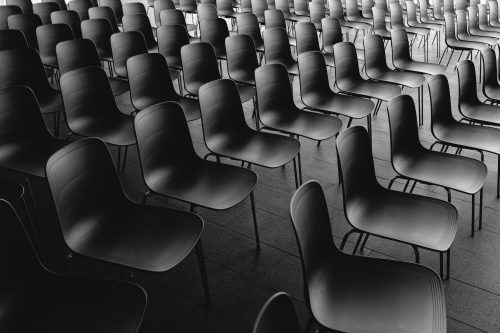The more experienced we are, the more unlearning we have to do.
We enter this world as creators, curious to discover ways to express ourselves visually, auditorily, kinesthetically. But, over time, we are taught to be more “realistic,” to be “safe” and “reasonable” and “normal.” When, in truth, we never wanted to be safe or reasonable. Maybe we wanted to be normal, but today’s normality template is far from what most of us had in mind at age five.
Growing up, we wanted to be ourselves. That was normal. But soon, we were placed in a classroom, told to stand in line and speak when spoken to, and prescribed ADHD medication if we got out of line. This methodology worked great for creating factory workers and farmers, which seemed ideal when 90% of the population was either the former or the latter.
Today, however, most people are neither factory workers nor farmers (and even those positions have changed radically in the past few decades), and yet we’re all graced with the assembly-line mentality, systematically programmed for compliance, expected to adhere to external standards while disregarding whatever our own internal normal was.
During this process, our creativity is quashed and replaced with a vast emptiness, a desire to create, even though we’re told we’re not creative. It’s no coincidence we start focusing more on consuming around the same time, looking for any(material)thing to fill the void.
“All children are artists. The problem is how to remain an artist once he grows up.” Picasso had this observation a century ago, and, unfortunately, these words ring even truer in today’s postindustrial world, a world where our vocations no longer ape the form of quasi-creation (a la farming and factorying), and thus the gap between creation and consumption widens as we attempt to buy what no one can possibly sell: individual creativity.
The strange thing about this antiquated system is that most of its gatekeepers—government officials, school administrators, and teachers—aren’t operating out of malice. If anything, their reaction is birthed from apathy or comfort or both. Many teachers, in fact, are just as disenchanted with the whole mess as we are, though they often feel like just another faceless cog in the wheel, powerless amongst the tyranny of bureaucracy.
Thankfully, there are alternatives. For children, there are home schooling and unschooling and wonderful programs like 826 Valencia. And for adults, the options are endless; there are books and blogs and writing classes and conferences. Plus, there are scores of people like The Minimalists—people who’ve rejected the system and aligned their lives with their values—who function not as teachers, but as unteachers, helping people unlearn the malarkey they’ve acquired over the years, so that they, too, can become unteachers and help spread creativity and ideas.
Of course, none of these alternatives are easy, per se, but then again it is way too easy to stand in line, to raise a hand when we want to speak, to blindly follow authority, to capitulate, and, above all, to comply. No thanks!
The easy route is easy because it’s a vacuum, devoid of meaning, vacant. It also lacks innovation and beauty and all the unspeakable qualities that makes life exhilarating and worth living. Naturally, the scenic route takes longer to travel, but the experience is worth it. To traverse the windy coastline takes more time, sure, but so does anything worth pursuing.
Also worth reading: Seth Godin’s Stop Stealing Dreams.


